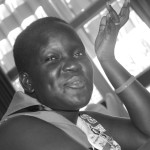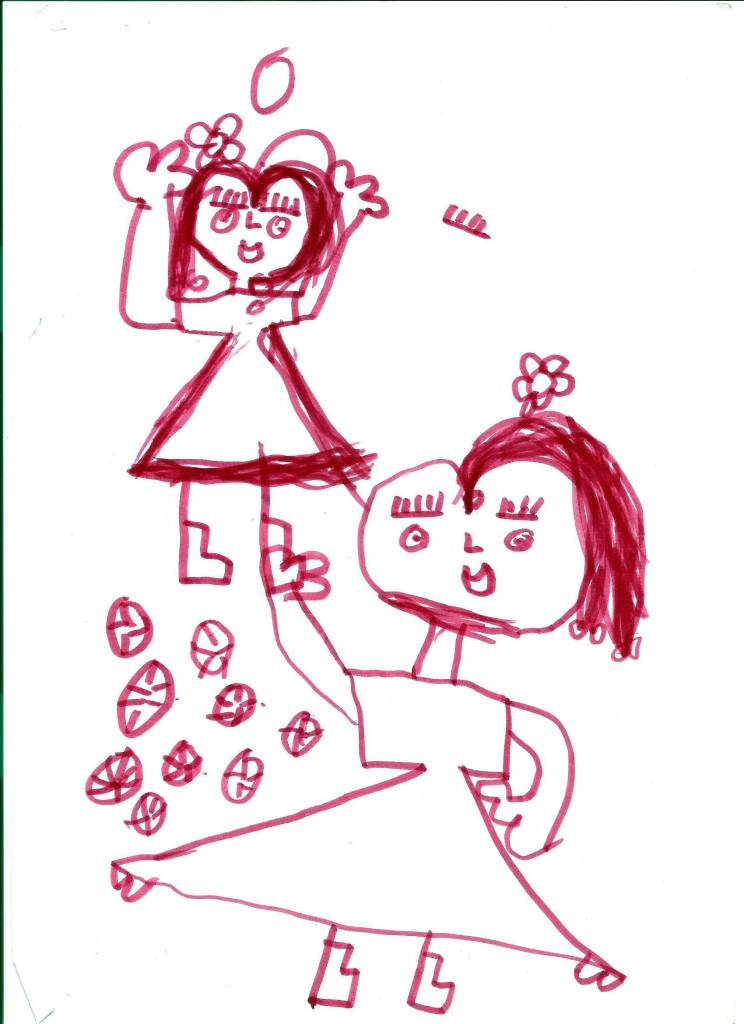How I Became Rukiya’s Second Mom
If you had seen Rukiya when I met her, at age 2, you would not have thought that today she would be alive and well and at school, age 7.
Back then, in 2009, her CD4 count was only seven. She was very sick and had some skin infection that made her look and smell bad.
Her mother had lost hope for Rukiya and brought her to our association. Although I am neither a doctor nor a nurse, I could help the mother emotionally. I kept telling her to love her child despite her ill health.
Doctors put Rukiya immediately on antiretrovirals. She recovered and has been taking her daily pills conscientiously ever since, along with her mother. When she is at school, the matron reminds her to take the pills.
So hard to talk about HIV
Rukiya’s story tells us a lot about couples and HIV.
The mom cleans a church pit latrine and the dad is a bricklayer. The mom says she found out she was HIV positive during antenatal care. But she did not believe the diagnosis; she was faithful to her husband and thought he was too.
Or maybe she believed it but did not dare speak. So she kept quiet about her status.
It could be that the husband knew or suspected he was HIV positive and he too kept quiet.
I totally understand why it was hard for Rukiya’s mother to accept her initial diagnosis or talk to her husband about it.
Women are usually the first ones in a couple to learn they are HIV positive, at antenatal care.
It is really hard for you, as a woman, to talk to your partner about your HIV status, and have him understand you, not blame you.
So a woman will hide her status, and this brings many problems. For example:
- Reinfection if your partner is HIV positive.
- Self stigma and denial – always blaming yourself.
- Violence, especially when a man finds out later from someone else.
- Mistrust in families, spouses blaming each other about who brought the virus into the family.
Rukiya was delivered healthily, but at age two she fell sick. At hospital, the child and her parents were tested. All were HIV positive and started antiretroviral therapy. I have stayed close to them, so close that Rukiya calls me Mummy.
The parents went on to have three more children, now aged four, two, and ten months, all born HIV negative thanks to ARVs.
I tell Rukiya that I am also HIV positive and I have a family, a job and a career helping other people with HIV, and that she, too, will have a rich and happy life. And she gives me a big tooth-gapped smile and hugs me.
I am so privileged to have in my life this child, who is not from my womb, but who calls me Mummy Jackie although I am not her real mother.
 Jacquelyne Alesi is a wife, mother, daughter, HIV activist and Programme Director at the Uganda Network of Young People Living with HIV/AIDS, an organization that since 2003 works to improve the quality of life for HIV-positive youth in Uganda.
Jacquelyne Alesi is a wife, mother, daughter, HIV activist and Programme Director at the Uganda Network of Young People Living with HIV/AIDS, an organization that since 2003 works to improve the quality of life for HIV-positive youth in Uganda.
En Español
The Latest
 From IPS News
From IPS News- Education Cannot Wait in Responding to the Regional Crisis Stemming From the Armed Conflict in Sudan
- Leaders Need to Break the Chokehold of Debt and Austerity. Our Health Depends on it
- Pioneering Digital Initiative Empowers Pacific Islands to Tackle Climate Disasters
- Who Should be the Next UN Leader?Part 1
- Secondary Education Is a Bottleneck in Brazil
- The Climate Alarm Is Ringing – It’s Time to Stop Silencing It
- IPCI 2024: Oslo Commitment Protects Sexual and Reproductive Rights Across All Contexts
- World Says Goodbye To a Caribbean Literary Giant
- IPCI 2024: Technology as a Tool to Advance and Threaten Sexual and Reproductive Health Rights
- Climate Governance, Adaptation, and Digital Solutions
- Online fundraising for IPS Inter Press Service at Razoo














